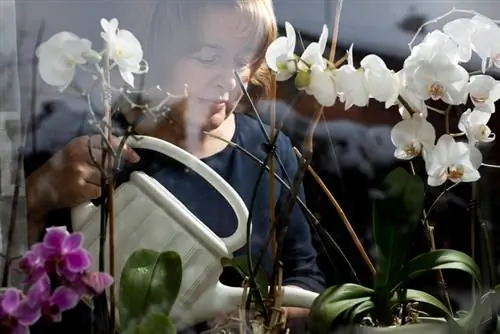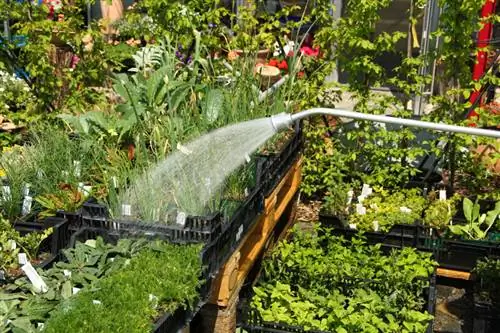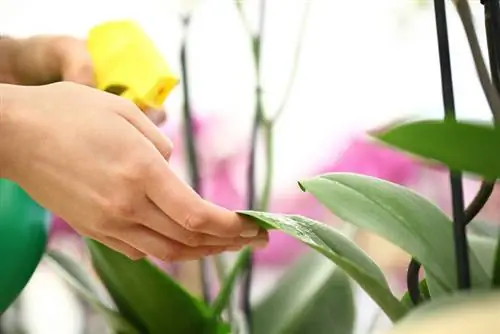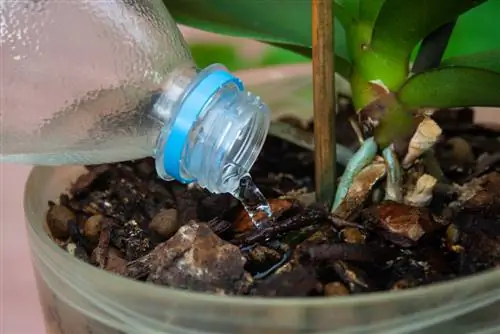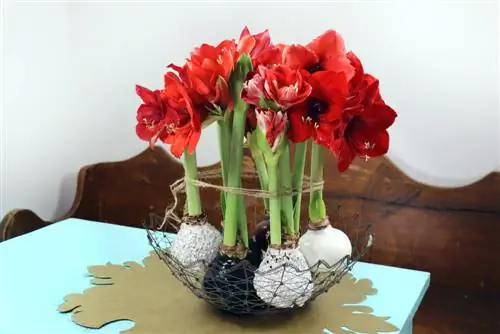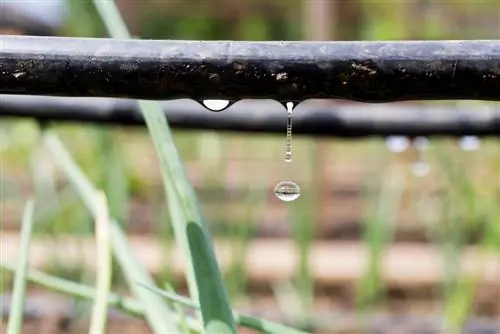- Author admin leonars@hobbygardeners.com.
- Public 2023-12-16 16:46.
- Last modified 2025-06-01 06:02.
In the sad ranking of the most common mistakes in orchid care, incorrect watering takes the inglorious top spot. Benefit from well-founded tips on maintaining a balanced water balance for a vital, blooming flower diva. How to water orchids properly.
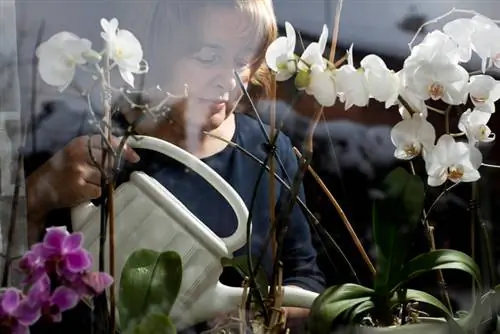
How should you water orchids correctly?
Orchids should ideally be watered by dipping: In summer, bathe the pot with roots in soft water once a week, making sure that there is no water in the leaf axils or in the heart of the plant. Dive less often in winter and check the root ball for dryness beforehand.
Diving is better than watering - tips for the perfect water bath
If you're a beginner and water your orchids like a normal houseplant, you'll be sure to get rid of the tropical beauty of the flowers. In their habitat, orchids mostly thrive as epiphytes, using their aerial roots to extract the water they need from short and heavy downpours. By bathing the root network every now and then, the water supply comes closer to the natural conditions. How to do it right:
- In summer, immerse the pot with the roots in a container of soft water once a week
- Bathe the orchid so that there is no water in the leaf axils or in the heart
- Dive until no more air bubbles rise
In winter, water the plant less frequently. Under the influence of reduced lighting conditions and cooler temperatures, the orchid usually slows down its metabolism. Therefore, before each water bath, check whether the root ball has actually dried.
The rule of thumb is that orchids with bulbs should be allowed to dry out almost before watering. Orchids without bulbs, such as the popular Phalaenopsis, should be kept constantly slightly moist without becoming waterlogged.
Tip
If you add liquid orchid fertilizer (€7.00 on Amazon) to every third water bath during the growth and flowering period, your orchid's nutrient needs will be met in an uncomplicated way. Between November and February, most orchid species can get by with a little fertilizer every 6 to 8 weeks.

